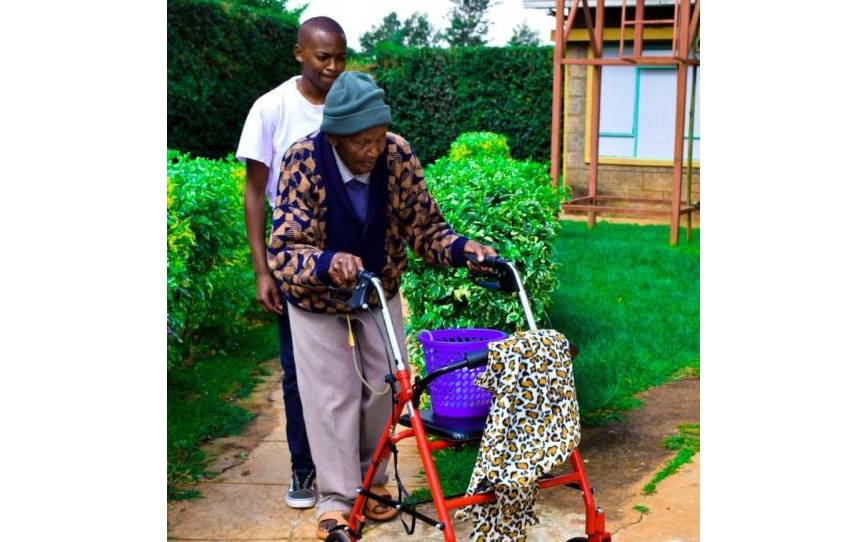×
The Standard e-Paper
Kenya’s Boldest Voice

An elderly woman strolling along the paths as she is followed by her caregiver. Elderly people have resorted to technology to beat boredom brought by the pandemic. [File, Standard]
They huddle close to their gadgets and fumble through the tiny writings on phones to figure out how to navigate and make video calls.







